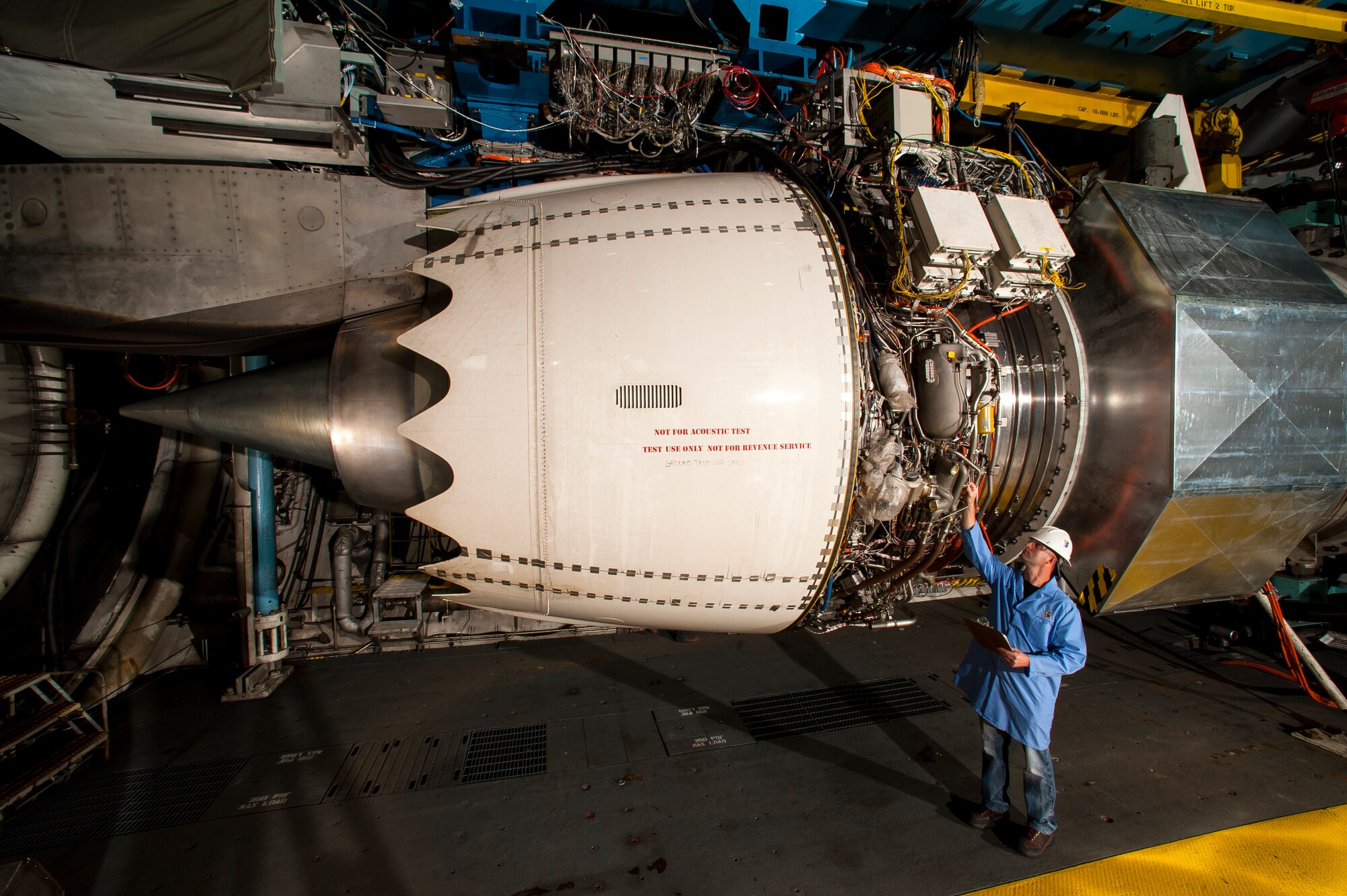EN 320 Engine Control System Performance Testing
The EN 320 standard is a crucial benchmark in the aerospace and aviation industry. It provides stringent guidelines for testing the performance of engine control systems, ensuring that these critical components meet both safety and operational efficiency standards.
Engine control systems are integral to the overall operation of an aircraft's propulsion system. They manage various parameters such as fuel flow, exhaust gas temperature, and turbine speed, among others. Any deviation from expected performance can lead to significant operational issues or even safety hazards during flight operations.
The testing process outlined in EN 320 is designed to identify potential weaknesses early on in the development cycle, thereby reducing risks associated with field failures. This includes simulating real-world conditions that engines encounter under various operating scenarios, from takeoff thrust levels down to idle speeds.
A key aspect of this testing involves evaluating how well the ECU (Electronic Control Unit) responds to changes in input signals and adjusts its outputs accordingly. For instance, it checks whether the system can accurately respond when faced with sudden increases or decreases in load requirements. Additionally, compliance with EN 320 ensures that all aspects related to reliability, maintainability, and durability are addressed.
In summary, adhering to EN 320 not only enhances product quality but also demonstrates commitment towards maintaining high levels of safety and performance across the entire lifecycle of an aircraft engine. By implementing this rigorous testing protocol, manufacturers can ensure their products comply with international standards set forth by organizations like EASA (European Aviation Safety Agency), FAA (Federal Aviation Administration), and others.
International Acceptance and Recognition
The EN 320 standard is widely recognized within the aerospace industry for its comprehensive approach to engine control system performance testing. It has been adopted by numerous regulatory bodies, including EASA and FAA, which further emphasizes its importance in ensuring safe and efficient aircraft operations.
Compliance with this standard not only enhances an organization's reputation but also opens up opportunities for international collaboration on research projects or joint ventures aimed at advancing technology within the sector. Additionally, it can serve as a benchmark when negotiating contracts or bidding for large-scale contracts involving multiple stakeholders involved in aerospace manufacturing.
For quality managers and compliance officers responsible for overseeing these processes, ensuring adherence to EN 320 is essential not only because of its direct impact on product performance but also due to the indirect benefits it brings regarding risk management strategies and long-term sustainability goals. By integrating this standard into their workflow, they contribute towards creating safer skies while simultaneously promoting economic growth within the industry.
Competitive Advantage and Market Impact
- Gains competitive edge by ensuring superior product performance across all operating conditions.
- Enhances brand reputation through consistent adherence to international quality standards.
- Promotes sustainable business practices that contribute positively to market trends favoring safer, more efficient aircraft propulsion systems.
By incorporating EN 320 engine control system performance testing into their operations, manufacturers can position themselves ahead of competitors who may not prioritize such stringent quality assurance protocols. This competitive advantage translates into higher customer satisfaction levels and increased market share within the highly regulated aerospace sector.
The broader implications extend beyond individual companies; they also contribute to fostering innovation throughout the entire industry by encouraging collaboration among stakeholders committed to advancing cutting-edge technologies. As a result, consumers benefit from safer, more reliable aircraft propulsion solutions that enhance overall travel experiences.
Why Choose This Test
- Comprehensive evaluation of engine control system performance across multiple operating conditions.
- Precise measurement capabilities for critical parameters such as fuel flow rate, exhaust gas temperature, etc.
- Facilitates early identification and rectification of potential issues before they become major concerns during certification processes.
The EN 320 test ensures that engine control systems perform reliably under all expected operating conditions. This comprehensive approach helps reduce risks associated with unexpected failures, which could have severe consequences for both passengers and crew members alike. Moreover, by adhering to this standard, manufacturers gain access to global markets where stringent quality assurance measures are required.
- Provides a clear roadmap for meeting regulatory requirements imposed by various aviation authorities worldwide.
- Promotes consistent product quality across different batches or production runs.
- Fosters innovation through continuous improvement initiatives based on robust test data generated during each evaluation cycle.
Implementing EN 320 engine control system performance testing offers significant advantages over less stringent methods. It allows companies to demonstrate their commitment to excellence in engineering practices while simultaneously enhancing customer confidence in the reliability and safety of their products.





